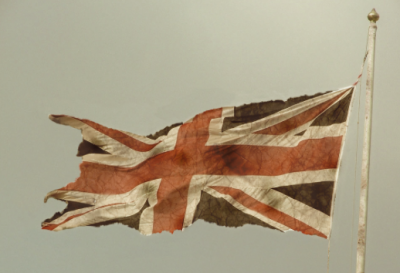Thursday Marked the Beginning of the End of the United Kingdom

Thursday was a busy news day, what with Trump’s impeachment and the Queen’s speech in Westminster, but another item given less coverage in UK mainstream media was arguably more significant than anything else making the headlines. Scottish First Minister Nicola Sturgeon’s speech, formally asking the UK Prime Minister to transfer the powers to hold a referendum on independence from Westminster to the Scottish parliament, may well go down in history as the beginning of the end of the United Kingdom.
Having bagged a landslide election victory, winning 48 out of the 59 seats in Scotland, Nicola Sturgeon has wasted no time in confronting Boris Johnson with what is, for him, an uncomfortable truth: that Scotland wants a second referendum on independence, and it’s not going to go away. Sturgeon’s rhetoric so far has been bold, saying that Scotland would not be ‘imprisoned’ inside the Union and that the UK government had to ‘confront reality’. On Thursday in her speech from Bute House she said her government now had an ‘unarguable mandate by any standards of democracy’ to hold another referendum on independence.
Alongside her letter to Boris Johnson requesting the powers to legally hold a second referendum under Section 30 of the 1998 Scotland Act, she published a 38 page document detailing proposed amendments to the statute, which would devolve the right to vote on leaving the UK to the Holyrood parliament. Entitled Scotland’s Right to Choose, the paper outlines her argument that there has been a “material change of circumstances” since the 2014 referendum, based on “the prospect of Scotland leaving the EU against its will and what EU exit has revealed about Scotland’s position within the UK”.
The Nationalists’ leader has a fair point. For we can debate about voters’ motivations till the cows come home, but facts are facts, and the fact remains that on 12th December the majority of Scots put their support behind a party which stands on an independence platform. Brexit hit Scotland twofold: it wasn’t simply the issue of leaving the EU itself which Scotland was against, but moreover this proud, northern nation has taken great exception to its views not being taken into account whatsoever in negotiations. In the draft Withdrawal Agreement there are umpteen mentions of Northern Ireland, but very little about how Scotland’s interests will be protected. The attitude has been something along the lines of ‘Scotland voted to remain in the UK in 2014 so it just has to put up with whatever Westminster decides’.
Indeed to say that Westminister is reluctant to grant another referendum is an understatement. Boris Johnson made it clear to Sturgeon in a telephone conversation last week that he was against it. This was reiterated by his minister Michael Gove this week when he said that there was ‘absolutely’ no prospect of the UK government ‘allowing’ another vote in the next five years. And herein lies the problem. For Westminster is always going to protect the Union, and oppose Scotland breaking away at all costs, as Spain has with Catalonia. Thinking that the EU would support Scotland when it hasn’t offered any help to Catalonia is futile.
Opponents are currently arguing that in fact, Sturgeon only won 45% of the vote last week, echoing the 2014 referendum result, and therefore, they suggest that there is no more appetite now than there was before. But one has to take into account the turnout for these two elections, and demographics. Many more people voted in the 2014 referendum than in last week’s election – 84% compared to 68%, and in particular, voters aged 16 and 17 were allowed to vote, as Scotland passed a law in 2014 allowing young people to do so in Scottish matters. Sturgeon knows that independence is popular amongst Scotland’s youth and therefore with the right campaign strategy, she must believe she can persuade young people to get out and vote for independence. A survey, organised by Conservative peer Lord Ashcroft in 2014, revealed that 71% of 16 to 17-year-olds voted for Scotland to be independent and 29% voted against.
Sturgeon is careful. Independence activists have been calling on her for years now to demand a second referendum and she is regularly accused of even secretly not wanting independence herself. But clearly she has just been biding her time and her patience has paid off. She could not have chosen a better time now to call for indyref2, the momentum is behind her after the election, with the political divide between Scotland and England more stark than ever before. And Westminster’s obstinance could just play into her hands, as the more reluctant they are to grant the referendum, the more resentment towards them will build up north of the border. Johnson should be advised to grant Sturgeon’s wishes now, or risk fostering such levels of antagonism towards him and his government in Scotland, from which there would be no way back…
*
Note to readers: please click the share buttons above or below. Forward this article to your email lists. Crosspost on your blog site, internet forums. etc.
This article was originally published on InfoBrics.
Johanna Ross is a journalist based in Edinburgh, Scotland.

